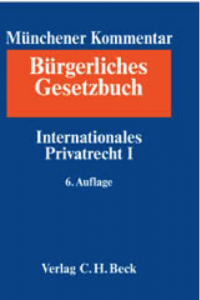Beaumont and Holliday on “Habitual Residence” in Child Abduction Cases
Paul Beaumont, Professor of European Union and Private International Law and Director of the Centre for Private International Law, University of Aberdeen (Scotland/UK), and Jayne Holliday, Research Assistant and Secretary of this Centre, have published an insightful and carefully researched new working paper on “Recent Developments on the Meaning of ‘Habitual Residence’ in Alleged Child Abduction Cases” in the series of the Aberdeen Centre for PIL (Working Paper No. 2015/3, the full content is available here). The highly recommended article is based on an overview of the recent developments within European and International Family Law that was presented by Professor Beaumont at the conference on “Private International Law in the Jurisprudence of European Courts – Family at Focus” held in Osijek, Croatia, June 2014. Drawing from that presentation, the working paper focuses on the recent developments on the meaning of habitual residence in child abduction cases from the UK Supreme Court and the Court of Justice of the European Union (CJEU). In particular, the authors analyze the move by the UK Supreme Court towards a more uniform definition of habitual residence in line with the jurisprudence of the CJEU under the Brussels IIbis Regulation.
The authors summarize their findings as follows:
“Over the past 30 years the concept of habitual residence of the child in the UK has developed from one which put weight on parental intention to a mixed model, which takes a more child centric and fact based approach. By following the jurisprudence of the CJEU, the UK Supreme Court has made a genuine and conscious attempt to provide a uniform interpretation of the 1980 Abduction Convention. This will hopefully have the effect of creating a more uniform approach to the definition of habitual residence amongst all Contracting States to the Hague Abduction Convention. […] If enough weight is given to parental intention of the custodial parent(s) of newborns then physical presence is not required to establish habitual residence. This is an easier solution to arrive at if the myth that habitual residence is a pure question of fact is abandoned. Whilst a mixed question of fact and law is the best way to analyse the ‘habitual residence’ of the young child, it is not appropriate to introduce into the equation a suggestion that somehow habitual residence cannot change when the custodial parent lawfully removes a child to another country just because that decision was still subject to appeal in that country even though the appeal did not suspend the custodial parent’s right to take the child out of the country lawfully. Such an appeal should not prevent the loss of the child’s habitual residence in the country where the appeal is made and should not impact on the ‘stability’ of the child’s residence in the new jurisdiction to prevent habitual residence being established there within a few months of the residence beginning.”
 Zurich; Volker Lipp, Göttingen).
Zurich; Volker Lipp, Göttingen).